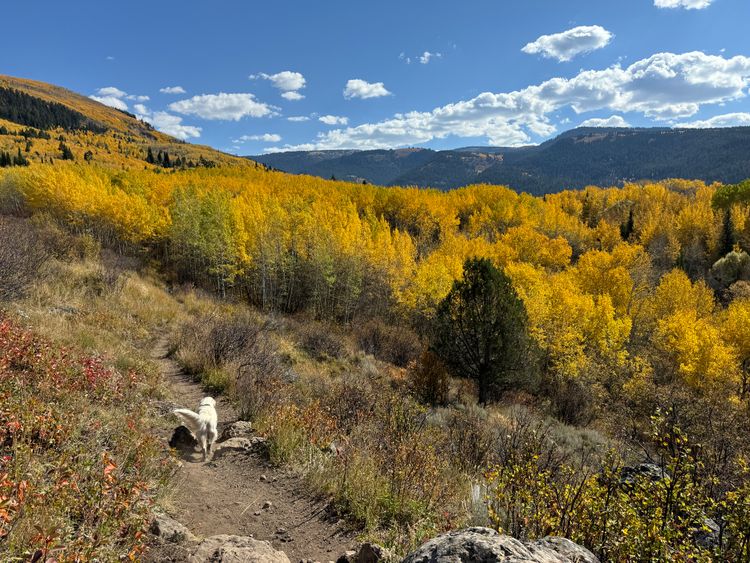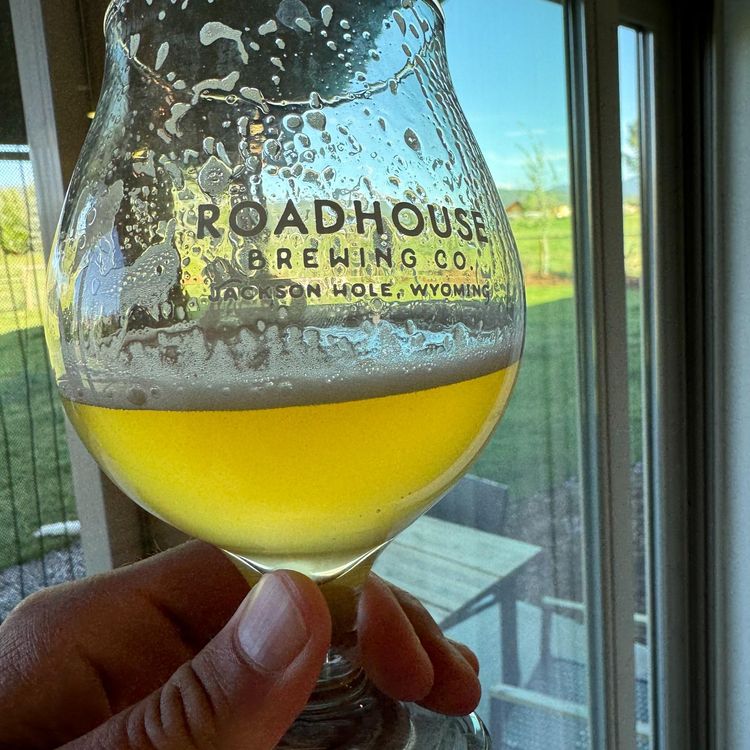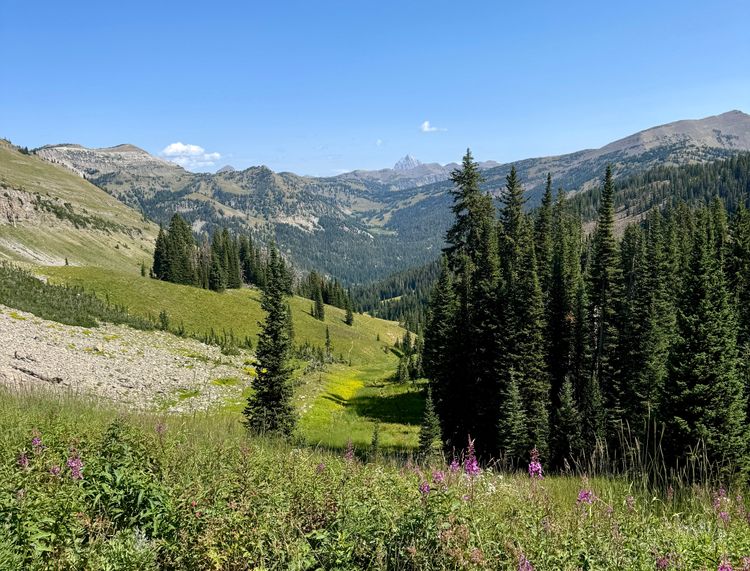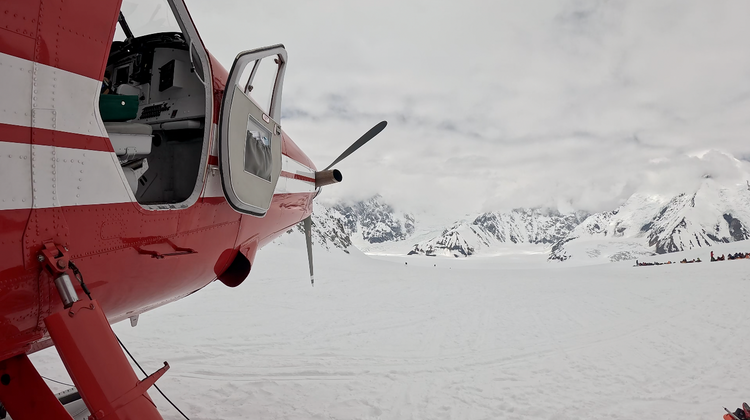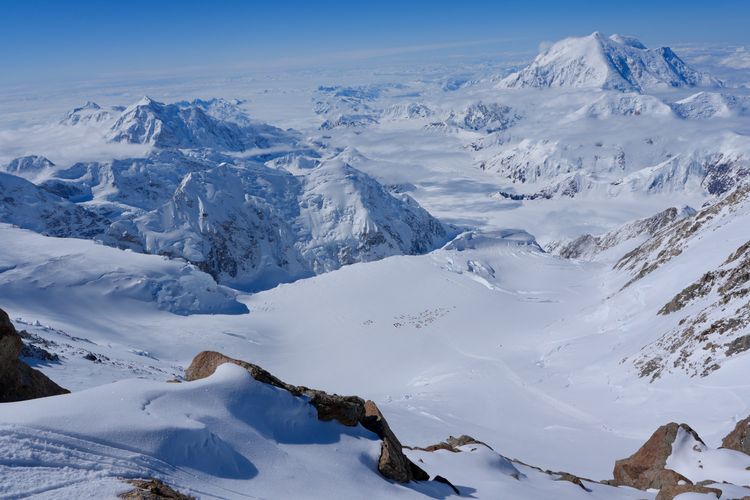Bike touring through the United Kingdom
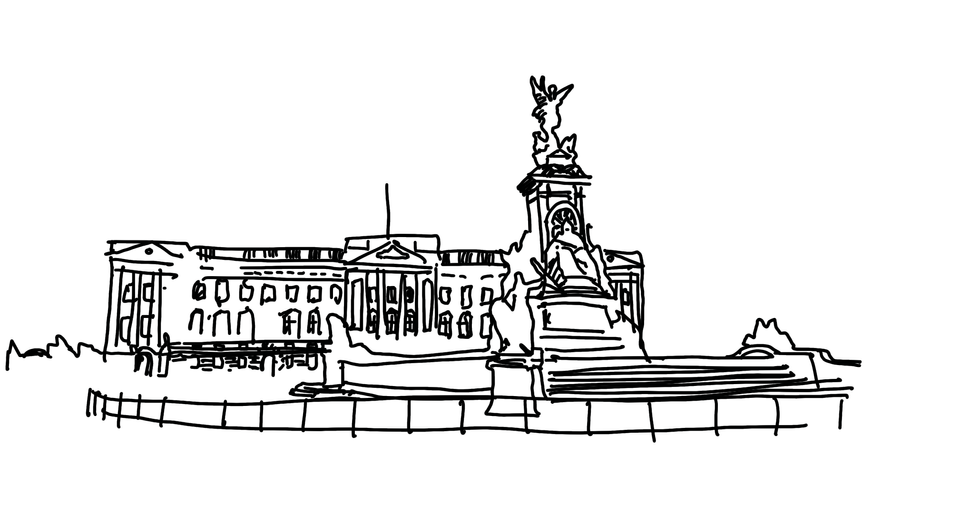
Conquering jet lag with booze
09/18/24 - 09/19/24
You pack economically when cycling around a foreign country for three weeks. I brought a 30-liter bag over to the UK. It’s a cool little system that converts into a pannier you can hang from a rack on the bike.
Going so light for so long makes it feel like an adventure by itself. The sense of “I’ll just figure it out” if something’s missing. But I’m always surprised by how little I need on a trip. How disgustingly few pairs of underwear I can get away with.
I wanted to be disciplined on this go round. I was at least 30 pounds overburdened on the Denali climb in Alaska this year with gear or food that never emerged from my pack. I heard Mark Twight, the climber, once say on a podcast: “’What if’ weighs a lot.” Can confirm.
I’m new to bike touring as a method of travel, but my buddy Nic swears by it. You can move around like you’re in a car, but you can transfigure yourself into a pedestrian or pop onto a train whenever you choose. It’s minimalist and flexible.
I boarded a plane in Jackson Hole in the rain. The clouds shrouded the Tetons, which normally loom over the airfield like angry gods.
My flight to Heathrow connected in Salt Lake City. I sat next to a Mormon realtor from the Ogden area on his way to a bachelor party in Scotland. A sober, eight-day golf trip up at St. Andrews. We chatted for a while about growing up in Utah. He asked for a coke from the flight attendant. I got a Prosecco and the conversation died down after that.
I didn’t sleep much on the way over. My mind kept chewing on things like my impending job switch, and the general exhilaration of what I was doing. I felt very free.
When we landed my brain worked slowly to navigate my body through Heathrow’s winding corridors leading to the passport checkpoint. It feels like all international flights plonk you into an endless maze of weird tunnels at your destination. You don’t know whether it’s light or dark outside. They’re the backrooms of the airport. The parts only interdimensional beings and travelers from abroad get to see.
I took the Piccadilly line into downtown, but got to my hotel next to Waterloo station too early to check in. So I putzed around and walked over to the Thames, dodging other American tourists gawking at the Houses of Parliament. I drank a few cocktails in the lobby of the Ruby Lucy to stay awake. My tried and true approach to beating jet lag is to imbibe just enough alcohol and caffeine to make it to a normal bedtime on the first night. Like a Four Loko by other means. It sets my circadian rhythm right the fastest way that I’ve found.
I did dinner at a place called Love Sushi on Lower Marsh street. I brought back a couple maki rolls and wolfed them down while tucked into the hotel room bed, being careful not to sprinkle soy sauce on the white duvet.
Brixton with Ed
09/20/24
I slept for 12 hours. I wasn’t sure if I felt rested, but I’d made it to 8:00am and I was proud.
I tied on my shoes and wobbled out to the street where it was already loud with traffic and the light very bright. My first mission was to find a full English breakfast. I would end up surviving on these for the rest of the trip. I settled in at a place called Balance.
The English breakfast is not everyone’s slice of toast. It’s a heavy, meaty ensemble consisting of back bacon, black pudding (blood sausage), breakfast sausage, fried eggs, buttered toast, beans, mushrooms, a potato hash brown, and a roasted tomato to make you feel better about yourself. I love it to death. The flavors and the smell remind me of growing up in the English countryside. It’s also nice that I’m not hungry again until well into the afternoon after I eat one of these platters.
Very full, I walked over to the bike shop and picked up my ride for the next three weeks: A Trek hybrid touring design. I rented an extra pannier for a bit more storage capacity.

The plan for later was to meet my old pal Ed for lunch down in Brixton. Ed and I are part of a friend group originating from Newmarket, a town up near Cambridge. My mom enrolled my sister and me in the British education system while my dad was stationed in the UK with the US Air Force. As a kid, it made me feel like England was my country too. Whereas life on US military bases abroad is like being in a tiny version of America. They have Burger Kings and Taco Bells. You might as well be in Kansas for all you know of the world beyond the fence. It was through primary and middle school that I built this lasting network of English pals, like Ed, many of whom I’ve dropped into a WhatsApp group called “Transatlantic Alliance.” I send them pictures of my dogs.
My original intent for this morning was to meet up with the journalists who run the Ukraine: The Latest podcast at The Daily Telegraph, which I’ve been following religiously since February of 2022. I had a whole plan to swing by their offices in Westminster to say hello, but my contact there who runs the podcast program figured out the day before it was actually against the paper’s policy to host rando fans for visits. Disappointing, but made sense from a security point of view since they talk a lot of shit on Putin.
Foiled, I decided to take my bike for a spin through the classic touristy sites around the city. I cycled over to Buckingham Palace, Regent’s Park, Trafalgar Square, Big Ben and the Houses of Parliament and the past the London Eye. I’m really not one for hordes of tourists, but I loved the movement. Ducking and weaving through people and cars. The noise and newness of the city. The breeze on my face. The refreshing tranquility of the quiet side streets, when I found them.
It’s a rush to merge with British traffic on the left side of the road. I watched other cyclists for cues on when to stop and go. In every country, the rules always seem flexible for people on bikes. There are times when you abide the traffic laws, like when there’s a cop watching, and other times where you flout them, like to seize the opportunity to get across an intersection on a red light.
London was warm and unusually sunny. By the time I showed up at lunch at The Laundry, basically an Edwardian laundromat refurbed into a chic bistro, my tee shirt was pretty damp. Running late, I charged down Kennington and Brixton roads from north Lambeth on the bike. The host let me store it behind the front gate, where I had to step over some potted plants. Ed, who I haven’t seen in person since 2008, waved me down from a table he’d claimed out front. We hugged, and I apologized for my sweaty state. He waved it off, beaming. The guy looked very put-together. Nice watch. An instantaneously welcoming demeanor.
Ed works as a wine distributer to restaurants and bars all over London. And he’s man about town these days. He seemed to know many of the staff at The Laundry and paused to ask them about themselves, how business was going. He was clearly plying his trade. I could tell he was good at it too.
He ordered a couple sauvignon blancs for us and proceeded to rattle off the flavor notes like a somme. As he was speaking, I was trying to reconcile my memory of the kid I hung out with in our primary school yard, where we’d play soccer with a rock, with the well-spoken wine merchant before me.
It happened to be Ed’s birthday and he had the day off from work, which is why he could wile away the afternoon with a disheveled and unemployed American. He had a dinner later planned by Alice, his girlfriend, but he wanted to show me around the Brixton scene beforehand.
Brixton is a wild place. Lively, eclectic, and incredibly diverse. After England found itself in ruins after World War II, the government encouraged members of far flung parts of the commonwealth, particularly the Caribbean, to come to London and help rebuild. So the street art, the food, the open-air markets all pulse with completely different energy than the rest of the city.
Ed pointed out Electric Avenue, immortalized in the Eddy Grant song, which is a stone’s throw away from The Laundry. It’s full of street vendors. Beautiful brick terraces bend away from you as you gaze down the road.
We strolled through Brixton Market over to Pop Brixton, a venue walled in by colorfully-painted shipping containers. Inside is a large sitting area containing a bunch of tiny bars and food purveyors. My immediate thought was that this place would make for an excellent fortress during the zombie apocalypse.
After a few beers in the container bars, Ed took me to the Trinity Arms. We found a spot in the smoky back courtyard, and suddenly, Alice appeared behind Ed, giving him a big hug. She’d tracked us down on our bar crawl and greeted me with the same warmth as Ed.
We lingered for a while, chatting over our drinks. When it was time for them to leave for their reservation, I bid Ed and Alice farewell and wished them a wonderful evening together.
I coasted back to my hotel on fumes and beer, picking up a couple more orders of sushi on the way. I think I forgot to brush my teeth as I drifted off to sleep.
Back to the Shire
09/21/24
If everything worked out, I’d be back today in Woodditton, the village where I spent so much time in my childhood. I felt a little apprehensive as I pedaled across the Blackfriars Bridge in the direction of King’s Cross. I saw Woodditton most recently 11 years ago and I wondered what time had tampered with in the interim. It can be dangerous returning to a place with so much significance to yourself.
Fiona and I drove through Lubbock, Texas, a couple of years ago on our way to New Orleans. That dusty town was home to my grandparents and great-uncle Art for decades. They’ve all since passed away, but the house my grandfather built on 94th street is still there. The exterior had been given a fresh coat of white paint when we drove by. It looked good, but I really hoped the new owners would stop there, lest they erase too much of what I remember. They may have purchased it, but it was still my family’s home in spirit.
I skirted through quiet and bike-friendly alleys, my panniers clanking on the frame with bumps in the asphalt, echoing off the buildings enclosing the street. Then, suddenly, my route dumped me onto Euston Road, which is loud and packed with traffic. Immediately I saw a man narrowly escape being hit by a car while trying to cross.
King’s Cross, which has a functional Victorian aesthetic, sits in stark contrast to St. Pancras station next door. St. Pancras is much more captivating, with its Gothic ornamentation and imposing clocktower. So many tiny details to take in. A large hotel forms the façade along the south side, adorned with arched windows ribboned with bricks alternating in color, and a steep, pointed roof. I wished my train to Cambridge departed from there. Instead, I wheeled my bike into King’s Cross.
I found the British rail system tough to understand at first. I bought a “Super Off-Peak Single” ticket, but I wasn’t sure if I was riding at peak hours, which you’re discouraged from doing by the booking website if you have a bike. No one seemed to care when I showed up with it. I had a hard time finding my platform. Then I had a hard time finding the bike carriage, where they have the racks you can use while in transit. I probably looked like such a tourist darting up and down the boarding area.
When I found the place where the bikes go, the racks were completely full. So, I pulled one of my panniers off, tossed it on the floor, and sat on it. I minded my bike, leaning on its kickstand, so it wouldn’t fall into anyone as the train pulled out of the station.
Soon we were in the countryside. Sprawling golden fields containing bales of hay that looked like crunchy fruit rollups.
We didn’t go into London all that much when my family lived here, so my understanding of the city and its layout is all the product of the last couple of trips I took there as an adult. But this I remember in my bones: The patchwork of fields interspersed with flint houses; the hues of yellow and brown stretching off into the distance; the small, wooded copses; and the unkempt, dark green hedgerows.
I transferred to a line running to Newmarket when I arrived in Cambridge. A rowdy bunch of college-aged kids boarded behind me, smelling powerfully of cologne and perfume and saying “fuck” a lot.
We arrived at Newmarket’s tiny train station and I dashed off with my bike as fast as I could. These more rural stops are given palpably less attention from the conductor.
As I steered my way onto the street and took a left onto Woodditton road, memories flooded back. We took countless trips up and down this pavement in my Mom’s 1990-something white Volvo sedan. This was the way to school and the way home every day for years.
By god do the cars whizz by. I remember it being a kind of slow road, but cars passed me on my bike at what seemed like 80 miles an hour. I thought about dying here on this thoroughfare as I pedaled. That it would be some kind of cosmic joke to come full circle and get smushed.
I’d made a promise to myself to stop off at Woodditton Church and pay my respects before going into the village proper. Many of the older people we knew as neighbors during my childhood years are now gone and buried in the cemetery there. I strode through the headstones and conjured up the memory of each person in turn as I read their names. I unintentionally stayed for long time because I had trouble locating Nigel, a grandfather figure to me, and his wife Shirley. I discovered it was because they didn’t have a headstone. Instead, a tiny wooden cross affixed with a brass plaque marked their resting place. I’d missed it on several passes down the row. The small marker made me sad.
I rallied myself, grabbed my bike next to the gate to the church yard, and continued into the village. The esoteric Woodditton sign that Nigel made is still there on the intersection of Vicarage Lane and Ditton Green. It sort of looks like an atom sitting on top of a half-submerged set of wagon wheels...I don’t know.

Taking in the scene, I rode slowly to The Three Blackbirds, the village pub-turned-boutique-hotel. The place burned down in 2018. From the photos, it looked unrecoverable. But a holding company called Chestnut Group picked it up and brought it back to life much as I remembered it, only way more bourgeois. The cheapest room I could find was still pricey, but stylishly done and cozy.
Back around 1999, the place was kind of a dive. I remember it being dimly-lit, the smell of fried food and cigarettes wafting out of the bar. Nigel, who played the odd role of being both our landlord and family babysitter, took me there frequently when I was kid. We'd take a table out front and he'd tell me stories of when he was my age growing up in the area during the war. I'd sip on a ginger beer and he'd have an ale.
While I checked in, I looked over the menu at the bar and wondered what Nigel would say about a six-pound pint of bitter.
I hauled my bike into my room in the “barn” out back and then returned to the pub to order a beer and wait for Oli.
